|
I am a senior applied scientist at Microsoft, where I am working on developing on-device generative models. I recently spent two wonderful postdoctoral years at the Dept. of Computer Science and Engineering of UC San Diego, where I was fortunate to work with Prof. Julian McAuley. I received my Ph.D. and M.Sc. from the Dept. of Computer Science and Engineering at Seoul National University, where I was advised by Prof. U Kang. I obtained my B.Sc. from the Dept. of Computer Science and Engineering at Hanyang University. My research focuses on building AI systems that learn from complex user behavior. My goal is to create foundational models of user intent that power the next generation of intelligent and adaptive software. Email: hyunsikjeon (at) microsoft.com; jeon185 (at) gmail.com [ CV ] [ Google Scholar ] [ DBLP ] [ LinkedIn ] [ GitHub ] |
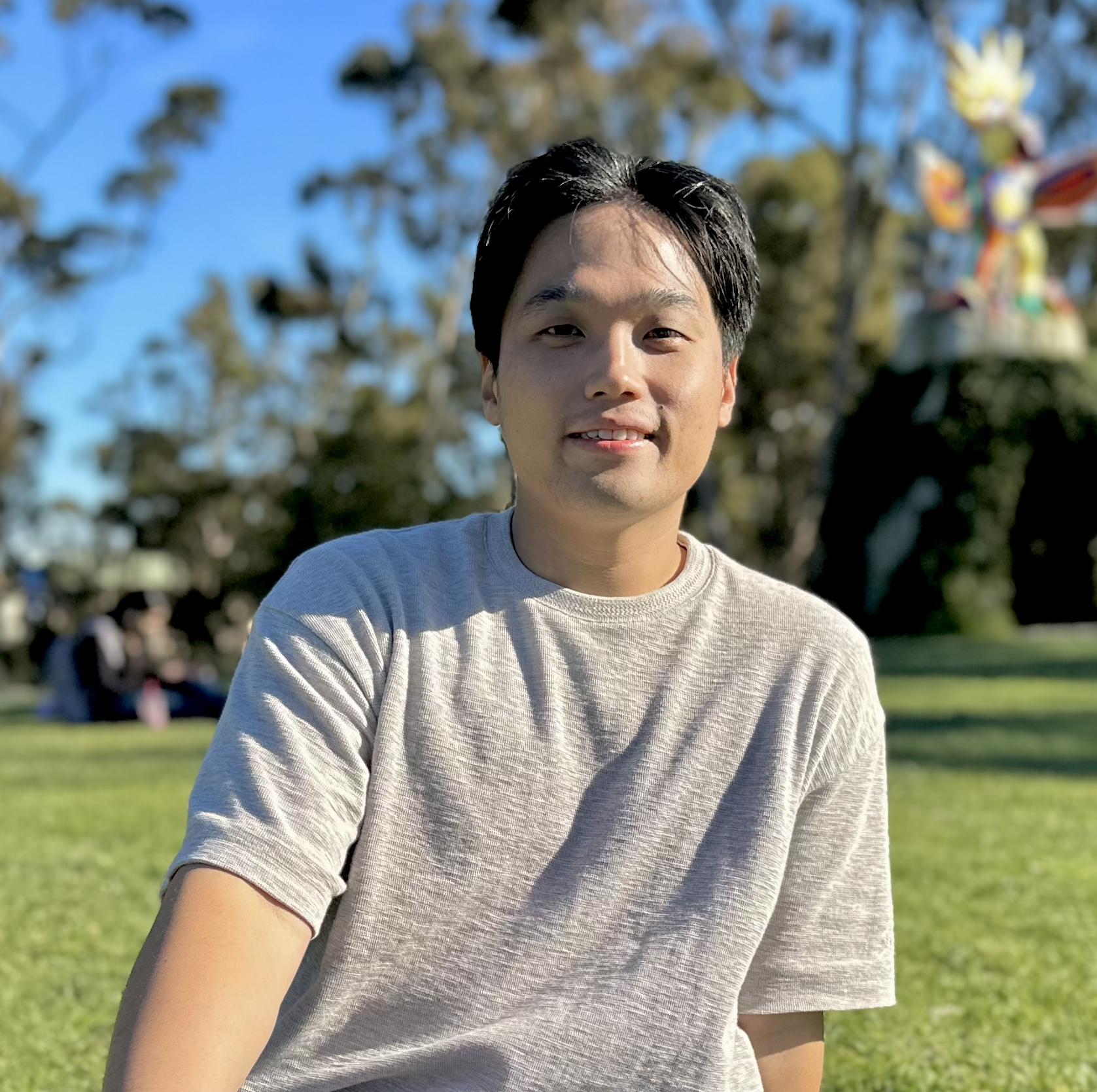
|
|
My research tackles a fundamental challenge in building personalized systems. Traditional models learn from static historical logs (what a user did in the past). However, user intent is often revealed through dynamic real-time interactions (what a user wants right now). This leads to my central research question: How do we build models that effectively bridge the gap between large-scale static behavioral data and sparse dynamic interactive signals? My work explores this by:
|
|
Visually-aware conversational recommendation dataset
A multimodal dataset for conversational recommendation where each item includes its image.
Action recommendation dataset
A dataset for accurate action recommendation in smart homes.
|
|
|
| |
 |
|
 |
|
|
|
|
| |
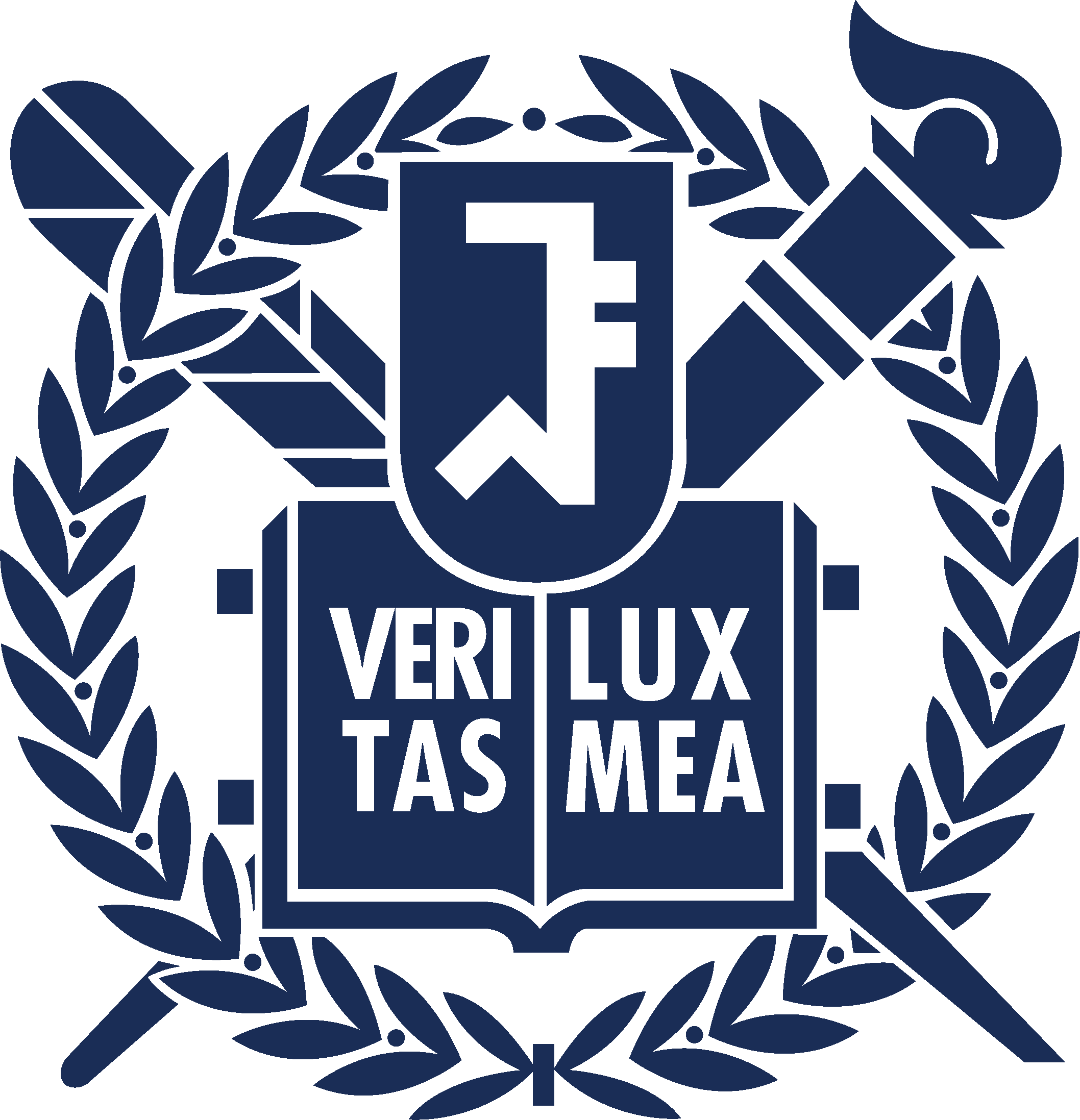 |
M.Sc. in Computer Science and Engineering (Feb. 2019) |
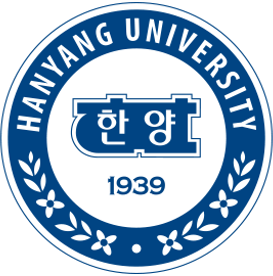 |
|
- Press (in Korean) |
|
|
|
|

|
Hyunsik Jeon, Satoshi Koide, Yu Wang, Zhankui He, and Julian McAuley KDD 2025, Toronto, Ontario, Canada [paper / slides / poster / code / bib] TL;DR
Conversational recommender systems engage users in dialogues to refine their needs and provide more personalized suggestions. Although textual information suffices for many domains, visually driven categories potentially require detailed visual information. We propose LaViC, a novel approach for the visually-aware conversational recommendation.
|
|
|
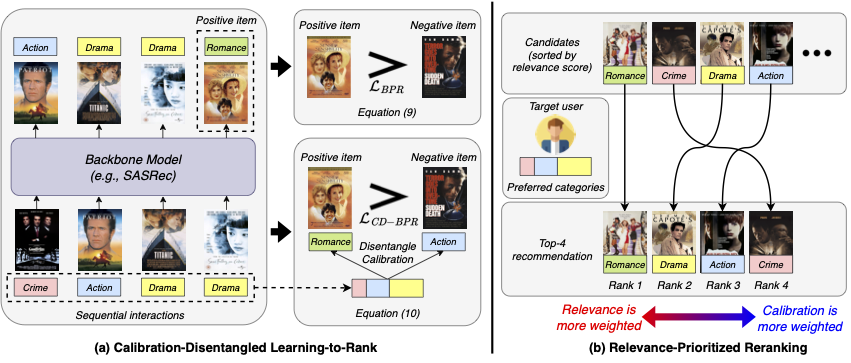
|
Hyunsik Jeon, Se-eun Yoon, and Julian McAuley CIKM 2024, Boise, Idaho, USA [paper / slides / code / bib] TL;DR
How can we reflect a balanced representation of user interests in sequential recommendations? We propose LeapRec which effectively combines model training with reranking to address the challenges of calibrating recommendations in a dynamic user preference environment.
|
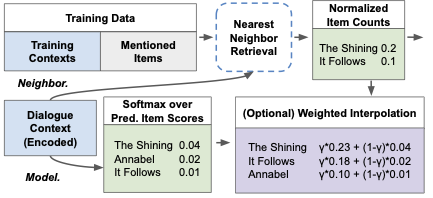
|
Zhouhang Xie*, Junda Wu*, Hyunsik Jeon*, Zhankui He, Harald Steck, Rahul Jha, Dawen Liang, Nathan Kallus, and Julian McAuley RecSys 2024 - Short Paper, Bari, Italy [paper / poster / code / bib] TL;DR
How can we address conversational recommendations without relying on cumbersome external knowledge or extensive training of large language models? We propose NBCRS which utilizes neighborhood-based methods to provide effective and efficient conversational recommendations.
|

|
Hyunsik Jeon, Jong-eun Lee, Jeongin Yun, and U Kang WWW 2024, Singapore Oral Presentation [paper / slides / poster / code / bib] TL;DR
How can we accurately recommend cold-start bundles to users? We propose CoHeat which recommends cold-start bundles (as well as warm-start bundles), accurately.
|
|
|
Se-eun Yoon, Hyunsik Jeon, and Julian McAuley arXiv (2024) [paper] TL;DR
We introduce a multimodal dataset where users express preferences through images.
|
|
|

|
Hyunsik Jeon, Jongjin Kim, Jaeri Lee, Jong-eun Lee, and U Kang PAKDD 2023, Osaka, Japan [paper / slides / code / bib] TL;DR
How can we expose diverse items across all users while satisfying their needs in bundle recommendations? We propose PopCon which recommends top-k bundles to users, accurately and aggregately diversely.
|
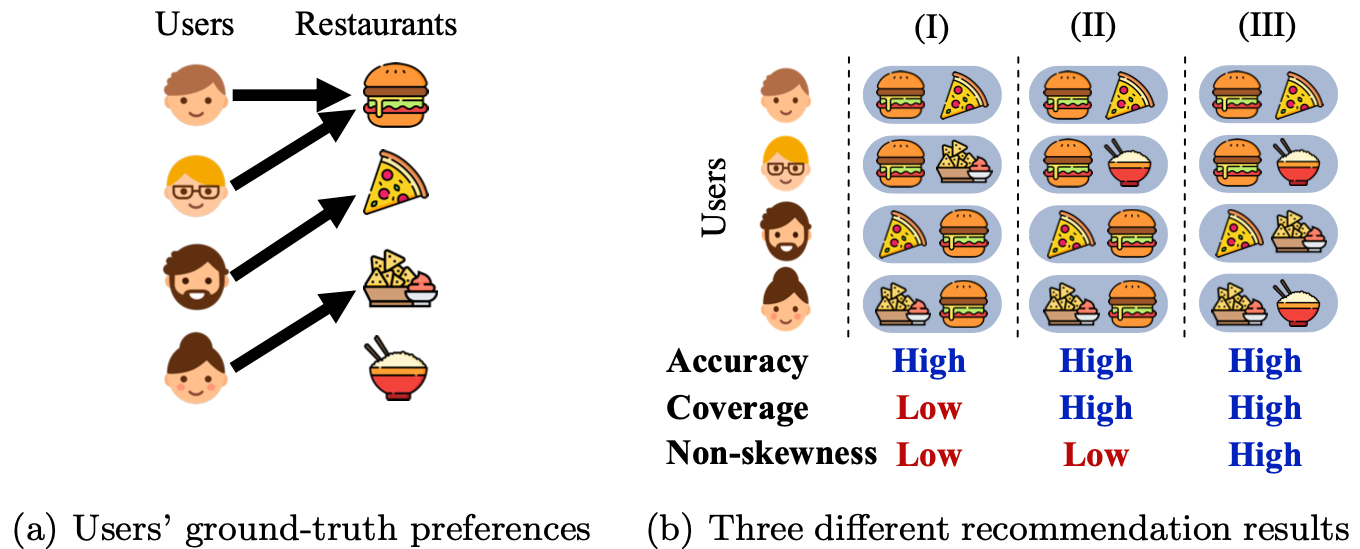
|
Jongjin Kim, Hyunsik Jeon, Jaeri Lee, and U Kang PAKDD 2023, Osaka, Japan [paper / arxiv / code / bib] TL;DR
When recommending personalized top-k items to users, how can we recommend the items diversely to them while satisfying their needs? We propose DivMF which recommends top-k items to users, accurately and aggregately diversely.
|
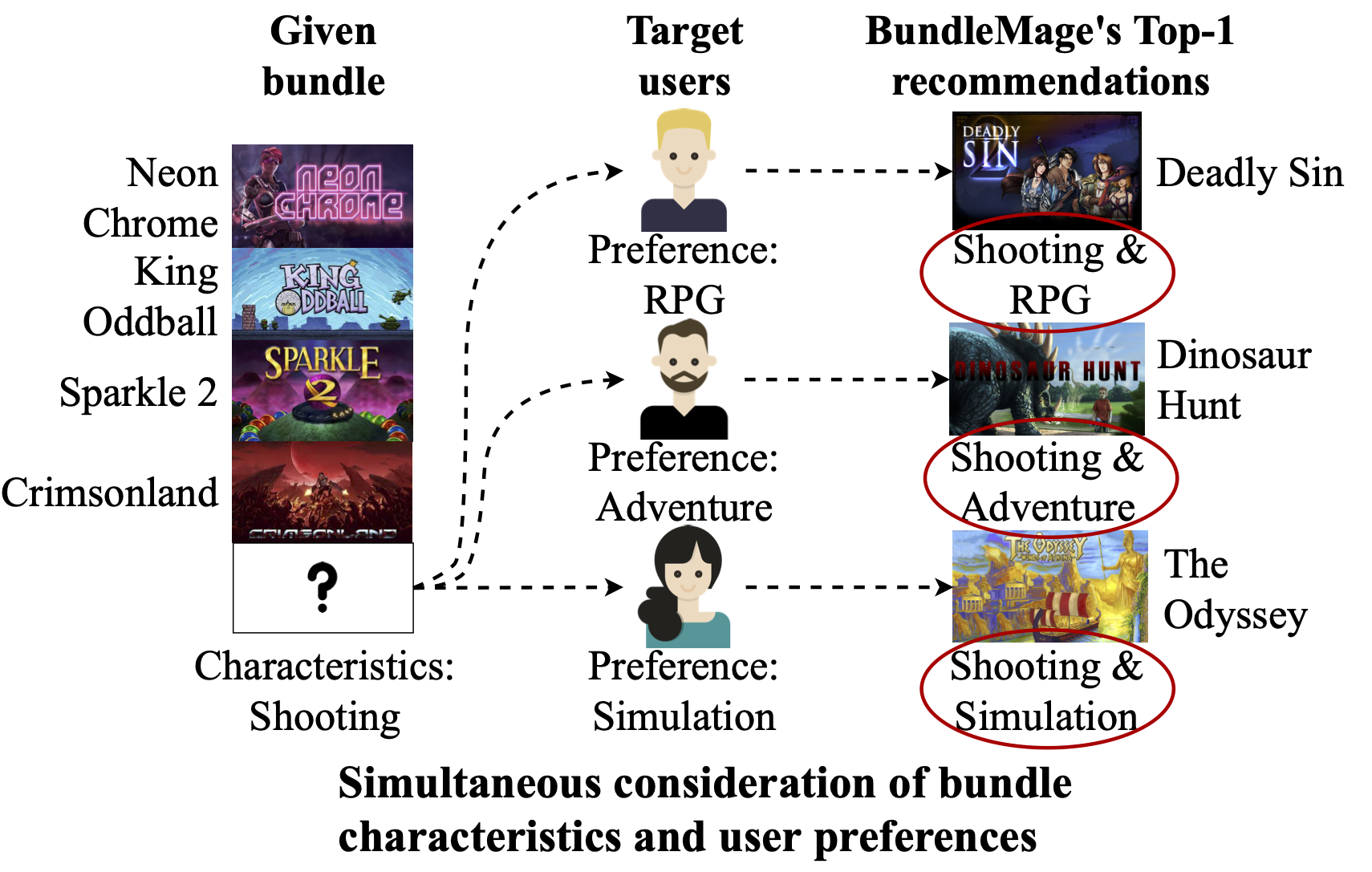
|
Hyunsik Jeon, Jun-Gi Jang, Taehun Kim, and U Kang PLOS ONE (2023) [paper / arxiv / code / bib] TL;DR
Given item and bundle purchase histories of users, how can we match existing bundles to the users and generate new bundles for them? We propose BundleMage which matches existing bundles and generates personalized bundles simultaneously.
|
|
|

|
Hyunsik Jeon, Jongjin Kim, Hoyoung Yoon, Jaeri Lee, and U Kang CIKM 2022, Atlanta, Georgia, USA SIGIR Student Travel Grant [paper / slides / codes / dataset / bib] TL;DR
How can we accurately recommend actions for users to control their devices at home? We propose SmartSense which recommends device controls to users, accurately.
|
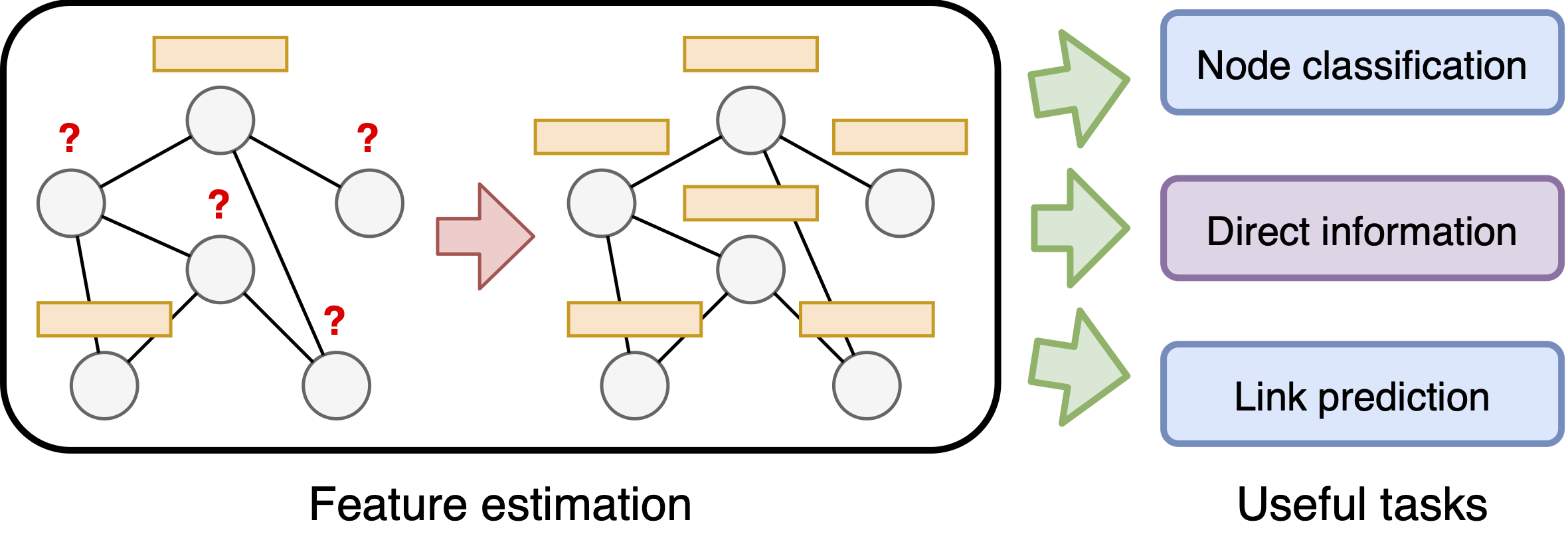
|
Jaemin Yoo, Hyunsik Jeon, Jinhong Jung, and U Kang KDD 2022, Washington D.C., USA [paper / slides / code / bib] TL;DR
Given a graph with partial observations of node features, how can we estimate the missing features accurately? We propose SVGA which estimates the missing features of nodes, accurately.
|
|
|
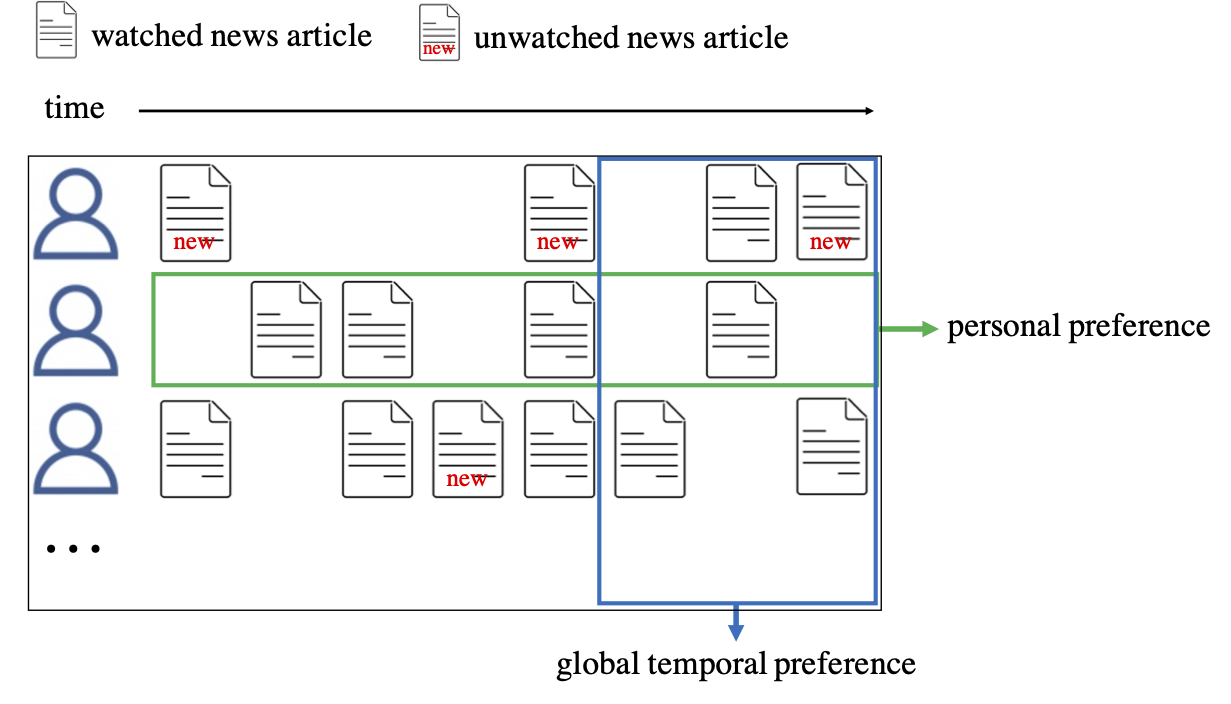
|
Bonhun Koo, Hyunsik Jeon, and U Kang KAIS (2021) [paper / bib] TL;DR
Given sequential news watch logs of users, how can we accurately recommend news articles? We propose PGT which recommends personalized news to the users, accurately.
|
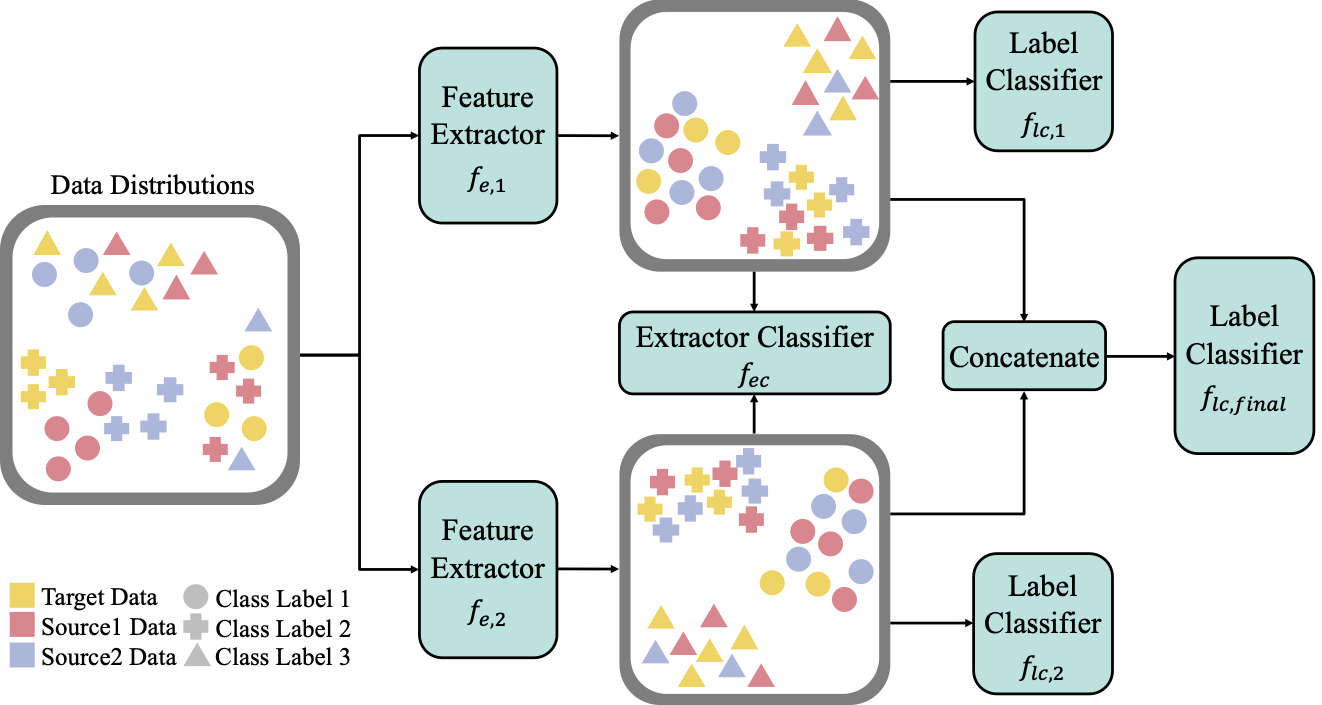
|
Seongmin Lee, Hyunsik Jeon, and U Kang PLOS ONE (2021) [paper / code / bib] TL;DR
Given multiple source datasets with labels, how can we train a target model with no labeled data? We propose Multi-EPL which accurately classifies the target dataset while utilizing multiple source datasets.
|
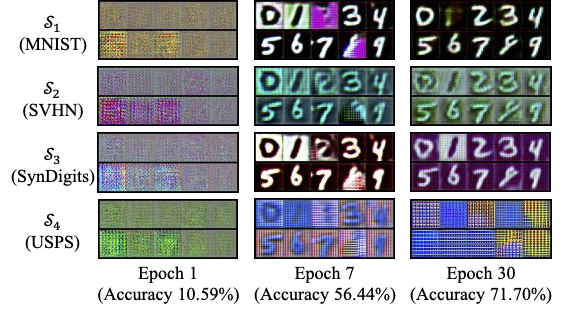
|
Hyunsik Jeon, Seongmin Lee, and U Kang PLOS ONE (2021) [paper / code / bib] TL;DR
Given trained models from multiple source domains without any data, how can we predict the labels of unlabeled data in a target domain? We propose DEMS which adapts target data to source domains and accurately estimates the target labels, without exploiting any source data.
|
|
|
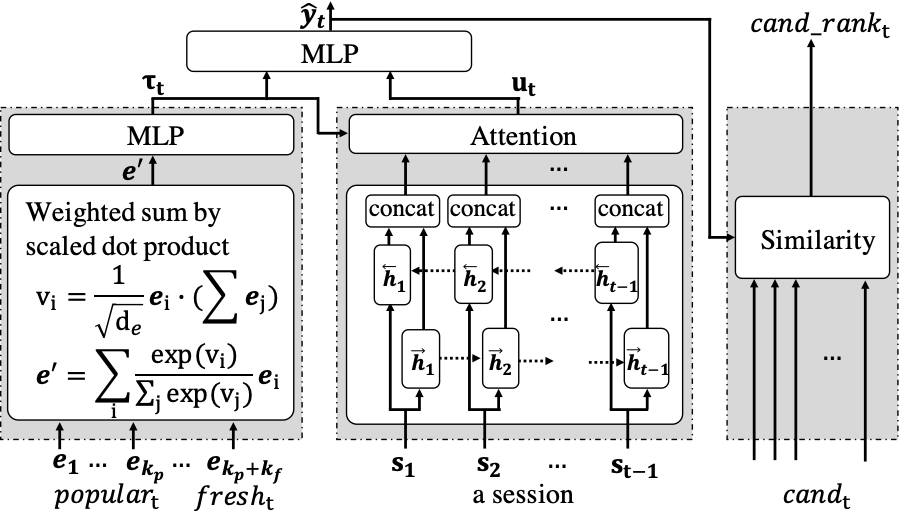
|
Bonhun Koo, Hyunsik Jeon, and U Kang PAKDD 2020, Singapore Best Student Paper Award [paper / homepage / bib] TL;DR
Given session-based watch history of users, how can we precisely recommend new articles? We propose PGT which recommends news to the users, accurately.
|
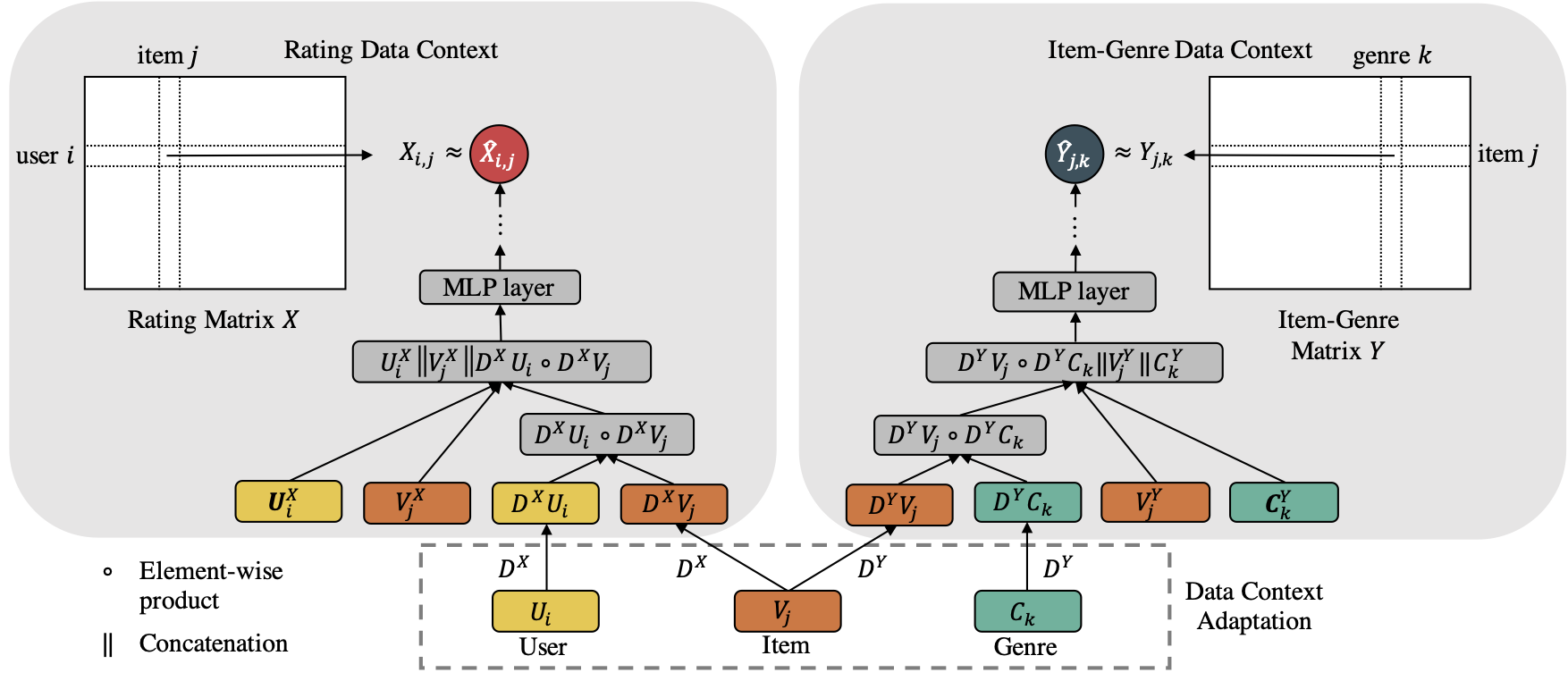
|
Hyunsik Jeon, Bonhun Koo, and U Kang BigData 2019, Los Angeles, USA Samsung HumanTech Paper Award, BigData Student Travel Grant [paper / slides / homepage / bib] TL;DR
Given a sparse rating matrix and an auxiliary matrix of users or items, how can we accurately predict missing ratings considering different data contexts of entities? We propose DaConA which accurately predicts ratings utilizing auxiliary matrix, based on neural networks.
|
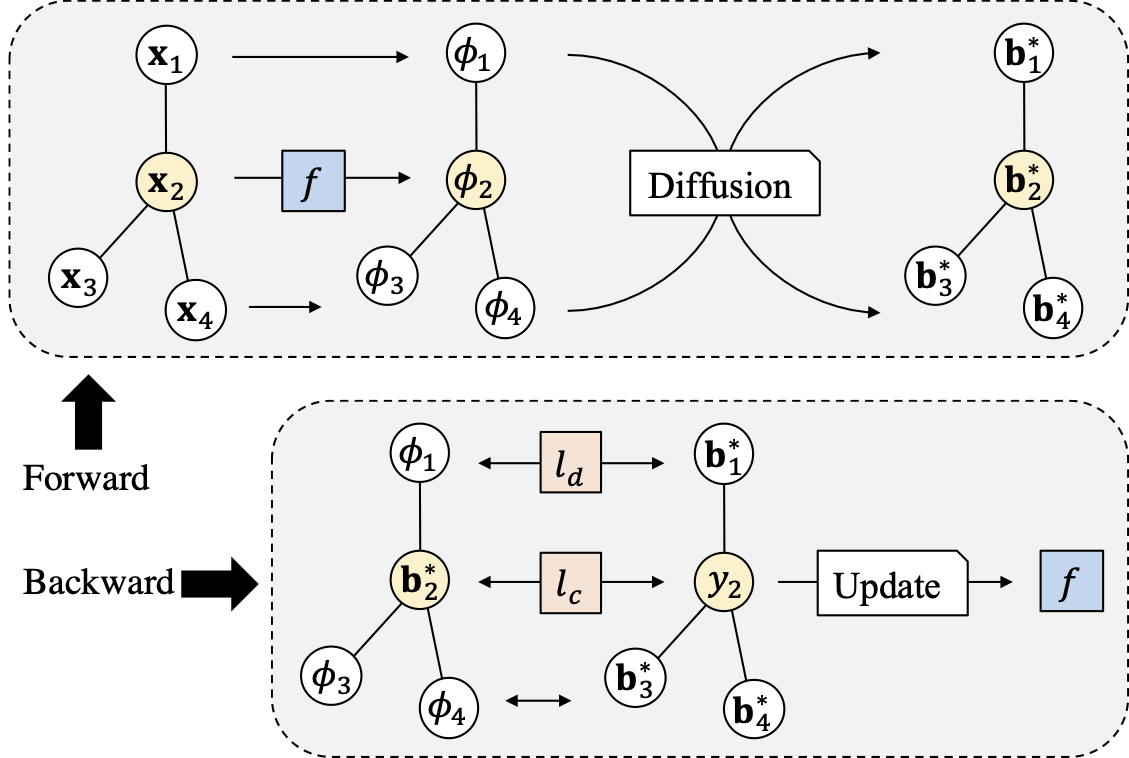
|
Jaemin Yoo, Hyunsik Jeon, and U Kang IJCAI 2019, Macao, China [paper / slides / poster / code / bib] TL;DR
Given graph-structured data, how can we train a robust classifier in a semi-supervised setting that performs well without neighborhood information? We propose BPN which accurately classifies nodes in a hard inductive setting, based on a neural network.
|

|
Haekyu Park, Hyunsik Jeon, Junghwan Kim, Beunguk Ahn, and U Kang arXiv (2017) [arxiv / homepage / bib] TL;DR
Given a social network and ratings, how can we correctly recommend proper items and provide a persuasive explanation for the recommendation? We propose UniWalk which accurately recommends items and explains the reasons while exploiting both social network and rating data.
|
CIKM (2018 - 2019) ICDM (2019) ICLR (2021) KDD (2019 - 2025) NeurIPS (2021 - 2023) SDM (2024 - 2025) The Web Conference (2019 - 2021, 2024 - 2025) WSDM (2019) |
|
|